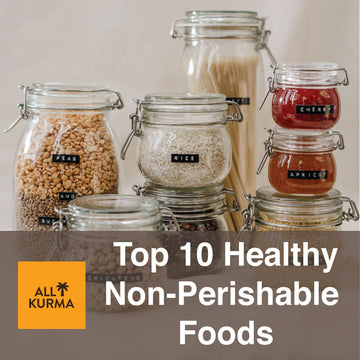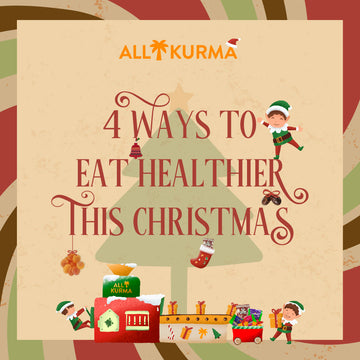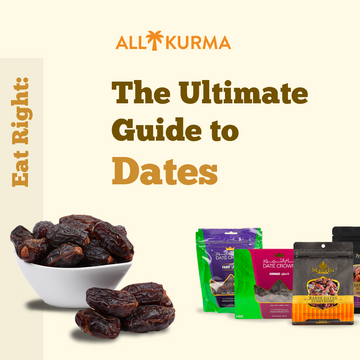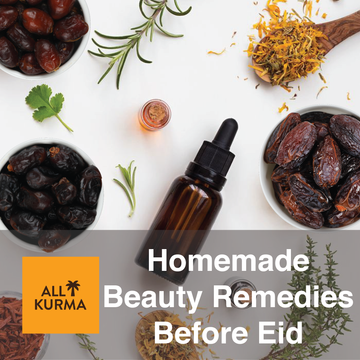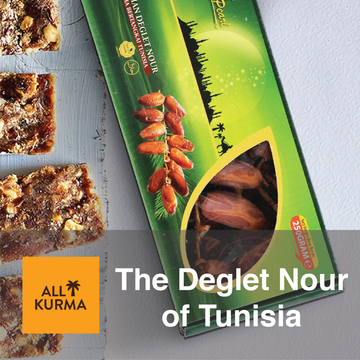Whether you are preparing for an emergency or just want to have a nutritious, well-stocked pantry, it is always a good decision to have some non-perishable food on hand.
Non-perishable food items are considered shelf stable, and can withstand months of storage without refrigeration, preventing them from spoiling or decaying as easily as fresh foods. This allows you to enjoy certain vegetables and fruits outside of their regular harvest season, or even enjoy certain foods that are not readily available within your own country.
Most fruits and vegetables are readily available as canned goods, allowing them to remain important components of your healthy diet, as they contain many essential vitamins and minerals. Choose low-sodium varieties whenever possible, and make sure there are little to no added sugars.
Here is a list of 10 of our favourite healthy non-perishable foods that deserve to be part of your regular diet:
1. Dried and canned beans
With a long shelf life and high nutrient content, dried and canned beans are smart non-perishable food choices. Beans are an excellent source of fibre, plant-based protein, magnesium, B vitamins, manganese, iron, phosphorus, zinc, and copper. What's more, they pair well with most foods and make hearty additions to soups, grain dishes, and salads.
2. Cereals, oatmeal and grain products
Grains in your diet give the body energy. Whole-grain oatmeal, whole-wheat pasta, brown rice, barley and quinoa are some nutrient-packed options to pick from. One good example of this is Springdale Cottage Tricolour Quinoa, which is high in fibre, protein and antioxidants, and is rich in Vitamin B12, magnesium and iron. Get stocking here3. Nut butters
Examples include peanut butter, almond butter and cashew butter. Nut butters are a rich source of healthy fats, protein, vitamins, minerals, and powerful plant compounds, including phenolic antioxidants, which are compounds that protect your body against oxidative stress and damage by unstable molecules called free radicals.
4. Canned fish and poultry
Canned tuna, salmon and chicken each provide lean protein. In addition, canned fish, like sardines and salmon, can be a good source of calcium and vitamin D when the bones are eaten as well.5. Granola and protein bars
These can be purchased from health stores or made at home using a few ingredients. Look for bars containing oats, nuts, and dried fruit, and with minimal added sugars and artificial ingredients.
6. Dried fruits
These contain all the nutrients and soluble fibre of their fresh counterparts, but they can be stored at room temperature for up to one year. Like nuts and seeds, they can be eaten on their own or used to sweeten up any dessert. The best dried fruits include raisins, apricots, prunes and dates, including Jericho Medjool Dates, which are rich in fibre, iron, potassium, B vitamins, copper, and magnesium. Checkout some of our best dried fruits
7. Dairy products
While fresh milk and some non-dairy alternatives like almond and coconut milks have to be refrigerated, some non-dairy milk products are made to keep at room temperature. Powdered and UHT milk are also a good alternative, as you will just need to add water.
8. Nuts
The shelf life of these bite-sized, protein-filled snacks depends on the nut, but they are excellent on their own or as part of a regular meal. Springdale Cottage's range of Roasted Almonds, Cashew Nuts and Pistachios are all packed with enough nutrients to keep you going all day.
9. Whole wheat crackers
Crackers are a good replacement for bread and make a fine substitute when making sandwiches. Due to their higher fat content, whole-wheat or whole-grain crackers have a shorter shelf life than their plain counterparts, but the extra fibre pays off when you're particularly hungry. 10. Dry pasta and sauces
It might be a carb-heavy, gluten-full food, but pasta is filling, and dry pasta and jarred sauce can last on pantry shelves for months. If someone in your household has dietary restrictions, look for gluten-free pasta or pasta made from chickpeas.
For more ideas on what healthy non-perishable foods you can add to your diet, click here.
Sources:
https://www.goodhousekeeping.com/food-recipes/cooking/a31944889/best-non-perishable-food/https://healthyeating.sfgate.com/list-unperishable-foods-10624.html
https://www.savvyhoney.com/healthy-non-perishable-foods/
https://www.healthline.com/nutrition/non-perishable-food
https://www.realsimple.com/food-recipes/shopping-storing/emergency-foods
http://www.eatingwell.com/article/7595030/nonperishable-foods-to-stock-up-on/


